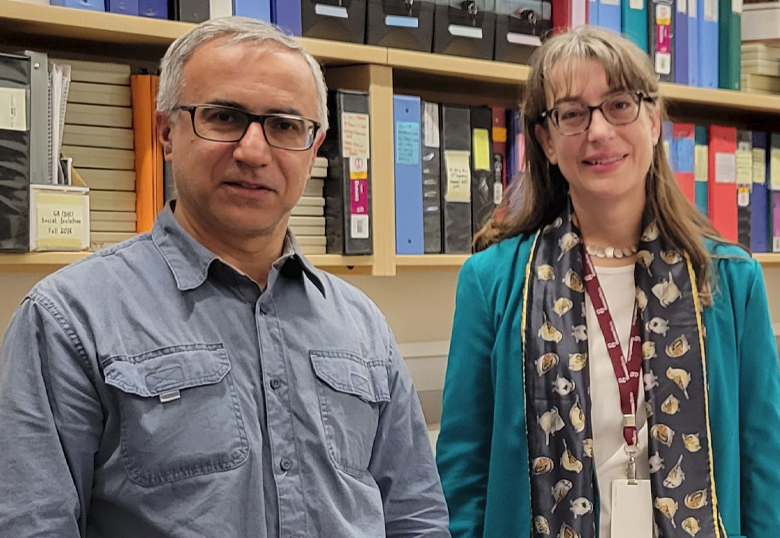As society begins to emerge from the restrictions of the COVID-19 pandemic, social interaction is beginning to return and according to a new study out of the University of Lethbridge — that couldn’t come soon enough.

Drs. Gerlinde Metz and Jamshid Faraji (Canadian Centre for Behavioural Neuroscience) wanted to know how important social interaction is and how it affects the brain when such opportunities are limited. They led a group of researchers in examining the effect that physical and social enrichment had on the expression of oxytocin and brain-derived neurotrophic factor (BDNF).
“We showed in 2018 that social support is particularly impactful on females and their mental health,” says Metz of their studies in rodent models. “We also discovered that social support helps with longevity and can actually slow down biological aging. We focused on oxytocin levels in the brain because it is the bonding hormone that downregulates stress.”
This new study seeks to understand the mechanism behind how oxytocin works.
“This is particularly important now because we realized the critical role of social support and loneliness and mental health during the pandemic amid the heightened levels of stress and anxiety specifically among pregnant mothers,” adds Metz. “The stress we experience now has potentially transgenerational consequences and may be passed down to offspring three or four generations down the road. We want to understand what we can do to mitigate the effects of that stress and to do so, we need to understand how stress affects the brain.”
The research group focused on the relationship between oxytocin and BDNF, which is the most abundant neurotrophic factor in the nervous system — what Metz refers to as the fountain of youth.
“BDNF actually leads to better learning, better mental health, brain development and healthy aging — it’s really beneficial in every way,” she says. “It acts on brain function throughout our lifespan and even enhances the survival of neurons and regeneration of neurons in the brain.”
In their study, Faraji injected an antagonist that blocked the effects of oxytocin. Without oxytocin interaction, BDNF expression was severely reduced, denying the brain of all those beneficial effects. To follow the dominos, lack of social interaction leads to less oxytocin which leads to lower BDNF expression.
“This was a causal link that we’d been missing before,” explains Metz.
They also discovered over the course of their work that while physical and social enrichment benefits both males and females and having both is best, physical interaction was most important to males and social interaction resonated much more with females.
“We have to be careful when we look at animal research and compare it to humans but I think we can learn some good lessons from these studies,” says Metz. “Right now, our population faces a severe mental health crisis and is aging rapidly. Pregnant mothers and elderly are especially vulnerable, and they feel the hit of the pandemic and the effects of social distancing. Given the links between social isolation, stress and health, it is more apparent now than ever to offer social support to vulnerable individuals or marginalized populations.”
While the pandemic has brought these concerns to the forefront, the lessons continue with those populations who traditionally have experienced social isolation. Metz also expresses hope because their work has shown how the brain incredibly heals itself over time given the right stimulus.
“I think it really helps us to understand these biological mechanisms because they give us something to work with, variables we can measure,” she says. “We can then see how treatments or interventions are successful and make adjustments where needed to better help people.”
The study — Regional Differences in BDNF Expression and Behavior as a Function of Sex and Enrichment Type: Oxytocin Matters — is published in Oxford Academic.
